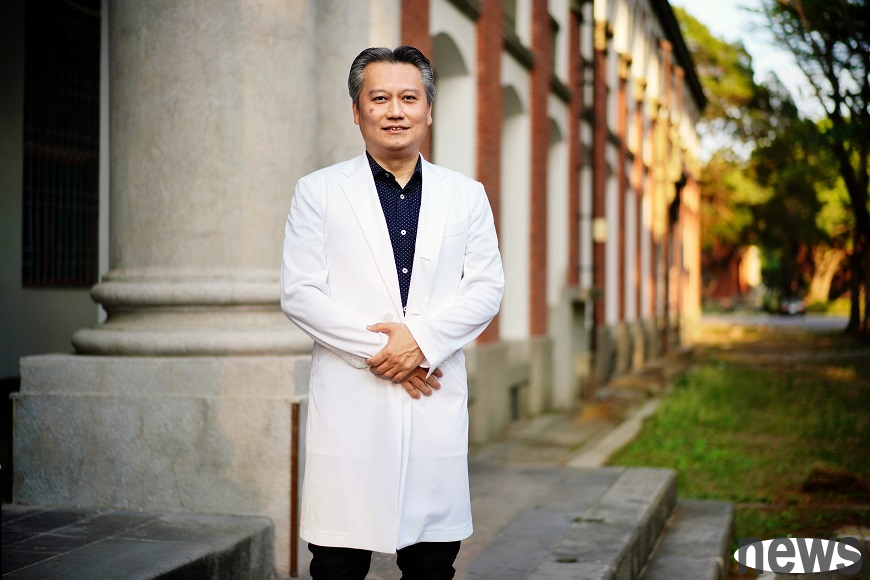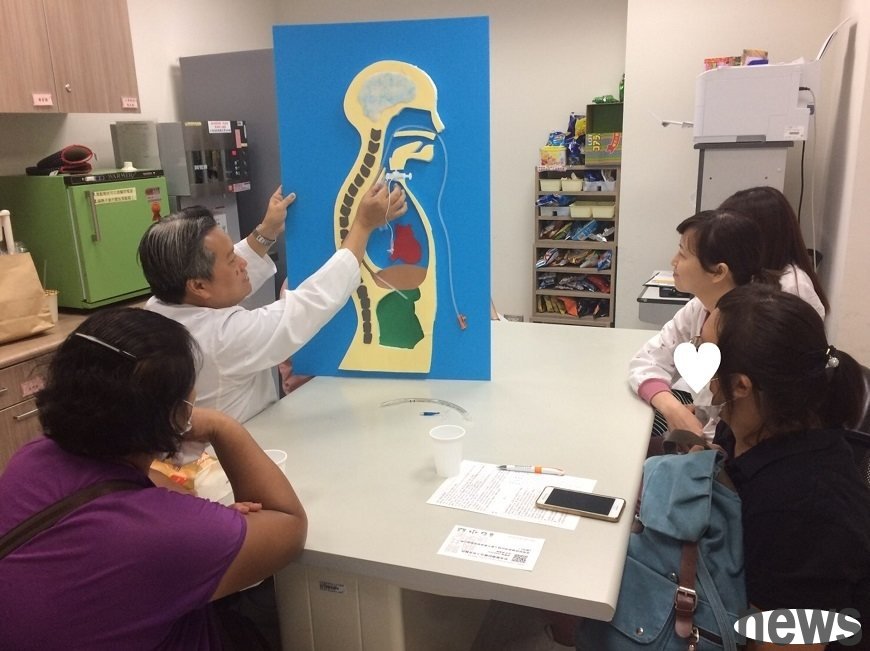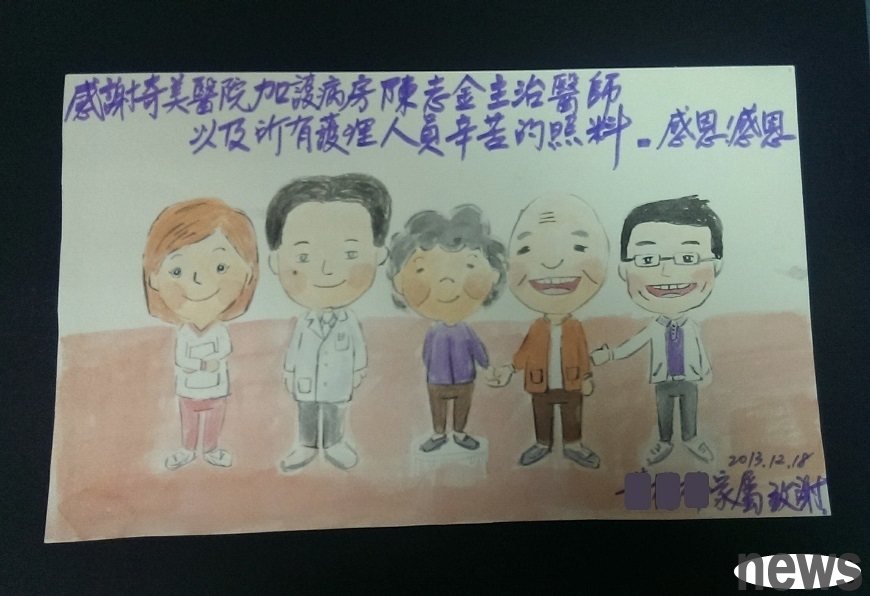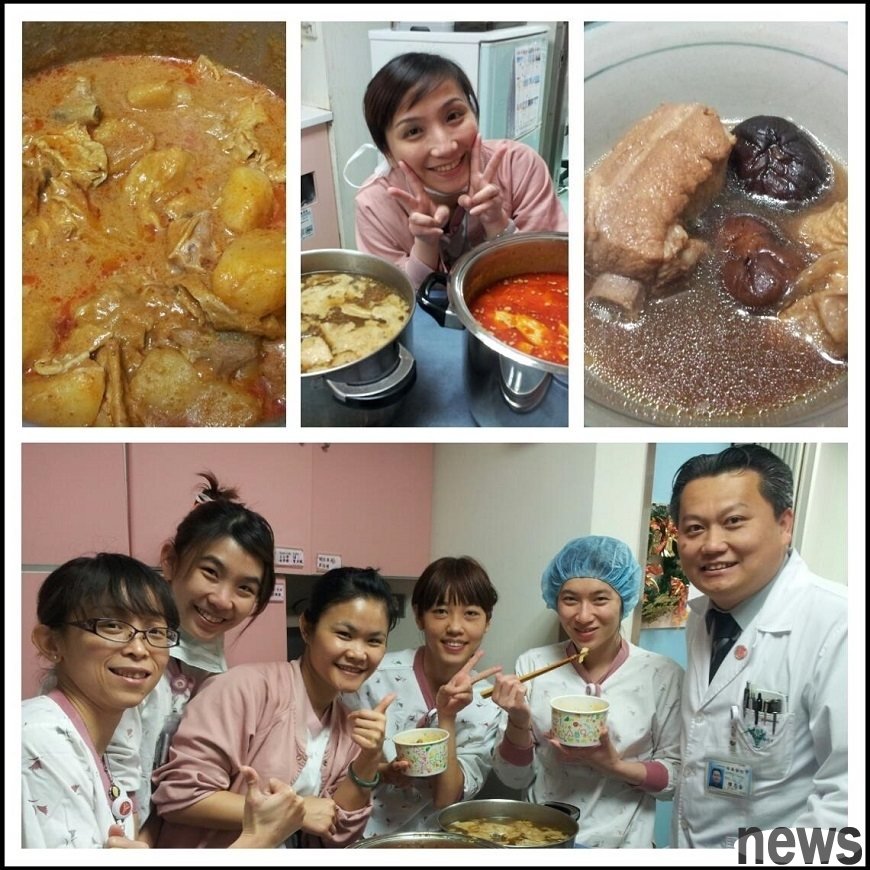Note: When my family passed away, are you always regretful and self-responsible? If I had known, I would not be too tired. If I had known that I would not leave that day, I would have known that I would be as filial as I could.…… Too m...

Note: When my family passed away, are you always regretful and self-responsible? If I had known, I would not be too tired. If I had known that I would not leave that day, I would have known that I would be as filial as I could.…… Too many "before I knew" often dragged people's lives. Chen Zhijin, the attending physician of the ICU (surcharge ward) of Tainan Chimei Medical Center, who is known as "Doctor Ajin", invested in critical medical treatment and saw countless experiences of life disappearing, and the warning given to him is: "Save the patient, and save the family."
" To make the doctor angry is that he is unable to get over his health and life. . Just like a car opens on a highway, will passengers want to quarrel with the driver? ”
"I like to talk about and leave behind VIPs, not only interfere with medical staff and waste medical resources, but also have almost no one to myself. There is any benefit."
"The nurse loves to drink precious milk. It is not that she can order food when she is too busy at work, but that she is busy with her full meals at no time."
These humorous, sharp and warm words are all from Chen Zhijin, who served as the attending physician in the ICU of Chimei Hospital. After 18 years of studying in critical medical science, he not only rescued critically ill patients in medical field, but also acted like a priest, committed to promoting medical communication and promoting correct medical concepts, but also made a voice for the rights of medical staff. "Medical diseases, doctors are more medically polite" is the evaluation of him by many colleagues.
After passing SARS and determined to devote himself to critical medical treatmentWhen SARS broke out in 2003, Chen Zhijin was the chief physician of the Department of Thoracic Institutions of National Taiwan University Hospital. Because most of the severe pulmonary infections and respiratory symptoms of SARS belong to the thoracic department, when National Taiwan University Hospital closed emergency diagnosis and non-emergency surgery due to the admission of SARS patients, only the thoracic department and the infectious department remained in the hospital to maintain their operations.
When a person wants to live, breathing and heartbeat are the most important. In the critical medical field that saves lives and tug of war with death, many ICU doctors have a background in thoracic internal medicine. During SARS, Chen Zhijin witnessed patients and even medical staff in a life-and-death relationship at any time, which also led to the idea of investing in critical medical science.
"Severe medical care is like a guardian in front of the ghost gate, and it is the last line of defense for medical methods." In addition to holidays, a critically ill doctor who must call (even on holidays, he may be called back to the hospital due to emergency conditions) has always kept a small A4 paper in Chen Zhijin's pocket for many years, which records the current illnesses and precautions of all patients in the ICU ward to prepare for timely needs.
Doctors share decisions, reduce the possibility of regretIt has been 18 years since I invested in severe medical care. Chen Zhijin said that no matter how hard I tried, an average of 2 people in 10 patients could not be saved. "But this 20% chance is all about losing my family."
In the face of the pain of losing my family, how can I reduce my family's regret and sorrow? Chen Zhijin has advocated the concept of "medical disease sharing decision" for many years. Since the patient was sent to the nursing ward, patients, medical staff and families were the partners working together on the same boat.
"In the past, doctors would ask you "whether to do it" for a treatment, and your choice was only Yes or No; now we list several possible treatment options, clearly inform you of the advantages and disadvantages that different solutions may have, and first understand the patient's "MVP": What Matters, Value, Preference, which all help doctors and their families make decisions." Chen Zhijin said.
In addition, one of the most common decisions encountered in ICU maintenance wards is whether to perform gastric incision, intubation to maintain the signs of life, or to extubation and let go. "If the patient is already in a coma and cannot express it at this time, conflicts may arise between the family."
Chen Zhijin observed that there is often a "spokesperson" who is particularly strong in the family, and his habits represent others to guide opinions, or to serve as a "spokesperson" who communicates with doctors. Chen Zhijin's approach is to understand the true thoughts of each family through anonymous online questionnaire surveys. "If the speech is relatively insignificant, the doctor will help him "endorse" at any time, and as much as possible, he can balance the will of each person (including the patient)."

When everything is done, the patient's life cannot be saved, a famous saying by Chen Zhijin is: "Save the patient, and save the family."
Chen Zhijin's mother passed away from illness at the age of 17, which made him more empathetic to the pain of losing his family. When he was a child, his family was in a difficult situation and his weak and sick mother waited for two years, but was still one step late and died of illness the day before the surgery.
At that time, Chen Zhijin was taking an important exam and thought about going to see his mother the next day. But this was the last one, which was the biggest regret in his heart. "I wanted to find out the reason why my mother left, and then I decided to go from medical care. Until I really entered the medical field, I realized that many times, some patients could not be saved just by wanting to save them." Chen Zhijin said with emotion.
He said that many patients who were originally healthy and suddenly fell down overnight were unacceptable to their first moments, and they always wanted to find out a reason: Is it because I ate something yesterday? /Is it because I had a fight with him in the morning? / I would have seen him today if I had known that I would have gone to see him today……
When Chen Zhijin saw it in his eyes and explained his condition, he added a sentence: "Many cardiovascular or brain injury diseases have no warnings in advance, and it is difficult to prevent them. Things have happened, so we should not think about the reason."
Once he thought of this view on his face Enjoy, a fan sent a private message to him, "Thank you, doctor, because the dispute that has kept me in my heart for decades finally broke down. I no longer think that I killed my father."
"Surveying responsibility does not help the disease, it will only make one person more difficult, and may even not be able to get out of it." Chen Zhijin even encouraged the family members to fulfill his wishes as much as possible when they finally met the people, and completed the "four ways": thanks, love, apology and apart.
"Many families who are strangers and even like enemies finally reconcile at the sickbed," said Chen Zhijin.

not only medical relations, but also medical colleagues who live together day and night also need trust and tacit understanding of team cooperation.
Chen Zhijin came to Chimei Hospital, the most large-scale in critical care in the southern part of 2005, and was sympathetic to the rich resources and manpower of the National Taiwan University Hospital. He also experienced a period of suitable running-in.
"At first, out of the pressure of seeking goodness, I was not polite about many things in the hospital, and then I used my own standards to ask others for help." At that time, Chen Zhijin often criticized hospital affairs on employee message boards. He joked that he used to be the "motor and car boss". Some nurses even deliberately arranged for attendance because they thought he was too "difficult" to avoid contact.
Later, Chen Zhijin participated in the training of seed teachers of "Medical Resources Team Cooperation" (TRM), which allowed him to learn how to cooperate with teams. "It's like on a plane, you must wear the oxygen shield first before you can help others. If the work atmosphere is not good, it will also affect the working conditions of the team."

"Of course it's difficult for patients who can't be saved. In the past, I used to use food to express pressure, but this was not very good for the body (laughs). Now, in addition to freeing up time to exercise, another way is to write articles on my face."
In addition to expressing my mood, I also want to share more positive medical communication and medical concepts. In recent years, Chen Zhijin wrote down his face and the ICU doctor's spots Didi, and now he is a "network" doctor with 160,000 fans.
"In fact, if you want to put it through, it is a recitation. If you write these stories, if someone who encounters the same experience sees them, it may be a chance to help them get out." It is true that a family is heartbroken when they leave the world, but at the end of life, if you can satisfy the final wishes of the person involved as much as possible, and even let the family regain their feelings. When you recall them later, you may not only have to worry or have laughter.
"As the old saying: Love needs to be done in time. Don't wait until you want to say and do things, and you can complete it now." In the critical medical scene where life and death are on the front line, "love" is still the most effective prescription.
Original text: In the face of death, what should we learn? ICU critical care physician Chen Zhijin: Don’t wait until later